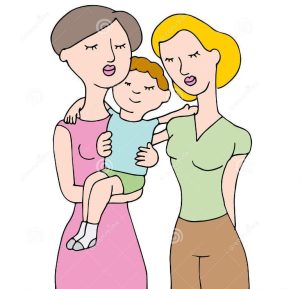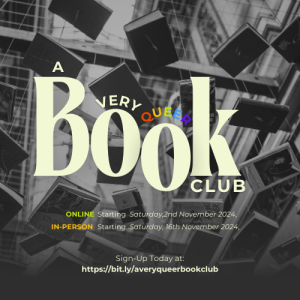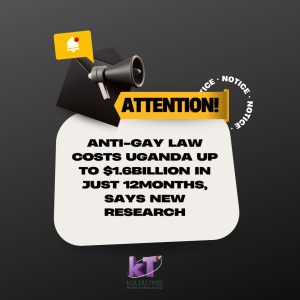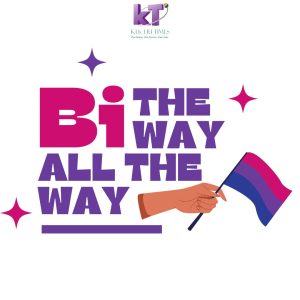
BM: Briefly tell our readers about yourself
RA: I am Reeney, a 34 year old Ugandan. I am happily married to the one person who loves me so dearly and unconditionally. We have a one and half year old son. I am pretty much a person of so many genres; corporate, self-employed and a lover of soccer and music.
BM: When did you first explore your sexuality?
RA: I always felt different from childhood i.e. from my choice of games and association. The games were pretty much boyish though most times we innocently thought of this as merely a part of the growing up process. Normally, I just had crushes on people but never acted on it and eventually the feelings would fade.
However, when I joined campus the story changed; I felt more confident and my first move was on a complete stranger; I gave her my number and as fate would have it she did call me. I believed this worked out on the resonation principle; being able to identify my own kind. Fortunately, she was very knowledgeable about minorities and was already in the community into which she introduced me.
BM: How has your sexuality affected your life i.e. immediate family, lifestyle and work?
RA: Immediate family
One thing that must be noted here is the fact that I have not really come out to the public about my sexuality. Therefore, my immediate family has been as close as ever more so with the arrival of our son, they want more interaction with him. They believe me and my partner are just close friends. Apart from that, all seems well to me though we can’t read people’s minds. None has ever posed the question; the usual questions asked are about when I intend to get married since am the only sibling who is still single.
Lifestyle
By my standards, my lifestyle has never changed and this might be a different story if I decided to come out openly, may be then would I experience that impact. Secondly, I think my job might be an active factor towards this too; I really don’t have much time to engage with the outside world since it takes up most of my time; one has to hustle hard to make ends meet. What is left of my time is what I use to bond with my family and then engage with the community when the need arises.
Work
The organization that I work for recognizes the rights of LGBTI identifying people i.e. they have the diversity and inclusion value that seeks to support my kind from discrimination at workplaces.
Secondly, the position that I hold could be another reason I have never had any challenges relating with colleagues. It might be an intimidating factor for my workmates to start asking if they ever had such questions. Thirdly, I don’t really discuss my private life at work apart from two colleagues whom I felt I could trust with my real story. They have been supportive, non-discriminative and never stigmatized me. Our relationship has been a normal one. I however believe all these might have changed slightly or significantly if I openly came out.
BM: As a Parent, how open are you to your children especially with issues concerning sex, gender and sexuality?
RA: Ours is still a young family. Like the old adage goes, “We will cross the bridge once we get to it.” But this has not stopped us from preparing for that time and therefore this would be my view; openness with children about sex, gender and sexuality can only be proper once they come of age or unless they get discriminated against, teased due to their family orientation that is same sex family.
BM: Do you worry that your children will be discriminated against because of your sexuality?
RA: We try to live a straight life as much as possible. With the arrival of our son, extremism is avoided ie there are no cozy or intimate moments in the presence of the child as they tend to imitate everything that they see or hear once they get to some age. We wouldn’t want to innocently decide our child’s sexuality, we wish to allow him make his choices independently. Creating an ideal family environment for our son is paramount but he is aware he has two mummies at the moment.
Worries about discrimination only come about when we expose the children to the truth at a very early stage. Most times, children are hit so hard by such news and they end up looking for a shoulder to lean on. In so doing, they innocently end up opening up to the society through a teacher or peer end up exposing themselves and the family to the homophobic society that they live in.
For every occurrence, we need to be proactive and find solutions as soon as possible. We are not worried about these for now, for instance we have agreed that when he comes of age we will tell him about his donor father’s origin. May be this will help him fit in the community easily.
BM: What has been most challenging for you as an LGBTI identifying parent?
RA: Parenting in all aspects of life is a challenge that is faced by both heterosexual and same sex marriages. One of the biggest challenges we face is the lack of legal recognition as a same sex relationship. Things like being on the same Medicare card, small things that people take for granted. If they could legally recognize our marriage and child within the relationship, things would be much simpler.
The society we live in is homophobic. People find difference a challenge and this bars us from openly coming out. However, involment with the community is active.
There are situations where one partner walks into the same sex affair with a child from a previous heterosexual marriage. In such a situation one stands to lose the child to the heterosexual parent simply because the society doesn’t support same sex marriages. Losing a child has emotional effects on a parent and the child too. Children born through donor insemination start wondering at some age who their fathers are. In our case, we chose not to get the details of the donor. However, we know the donor’s Nationality.
Adolescence/puberty also has so many effects on children; they start wondering how their peers perceive their same sex families. Their peers from heterosexual families will usually make the situation tricky. As an LGBTI parent, you start worrying about your child’s welfare while interacting with the outside community.
On a personal level, same sex families face prejudice i.e. the lack of support groups, services and legislation. The non-biological parents always feel they don’t get enough recognition as being “the other parent.” Bullying, teasing and singling out of children by their teachers and or peers. There are those traditional aspects in our African culture that worry me. First, a boy child belongs to his paternal lineage; we worry about what will happen the day he comes of age and requests to know his father. Secondly, a son will need a place he calls home or where he can start off his family from. Plans have to be made to soothe the future such that he won’t be left wandering about and feeling abandoned.
Segregation of duties in same sex marriages can also be a challenge if not handled properly from the onset of the relationship. This might look a trivial matter but you know the human mind betrays us at times for instance in a lesbian relationship both feel they are women and should get to do chores and contribute to the welfare of the family. Therefore, it is best if each one gets to know their stand in the relationship hence responsibilities.
As LGBTI identifying parents we are faced with conflict of exercising conjugal rights freely once the children are involved. This is worse in a state like ours where we are not recognized in that caution has to be exercised in all we do around children and all other members of the society we relate with. At times you are forced to live in separate rooms just for the sake of the children. This kills intimacy between partners since they have to sacrifice lots to make sure they raise their children as upright citizens and so as not to influence their sexuality choices.
BM: What would your advice to a parent with an LGBTI identifying child be?
RA: My advice might not be so transparent and or objective but I would say as parents we should not influence the choices our children make most especially concerning sexual orientation. Acceptance is usually a hard pill to swallow but exercising patience with a child so as to understand and know them better would be a better way for them.
Treat your children equally regardless of sexuality. An LGBTI identifying child is not possessed, mental and or running kukus as most people would love to believe; they are born not made. Help your child to explore his/her sexuality.
We should learn to live with all members of the society. I ask people not to segregate against the minority groups but rather live in harmony with them. We are just human like any other human being. Judge not for you too will be judged.
As published in Bombastic Magazine




